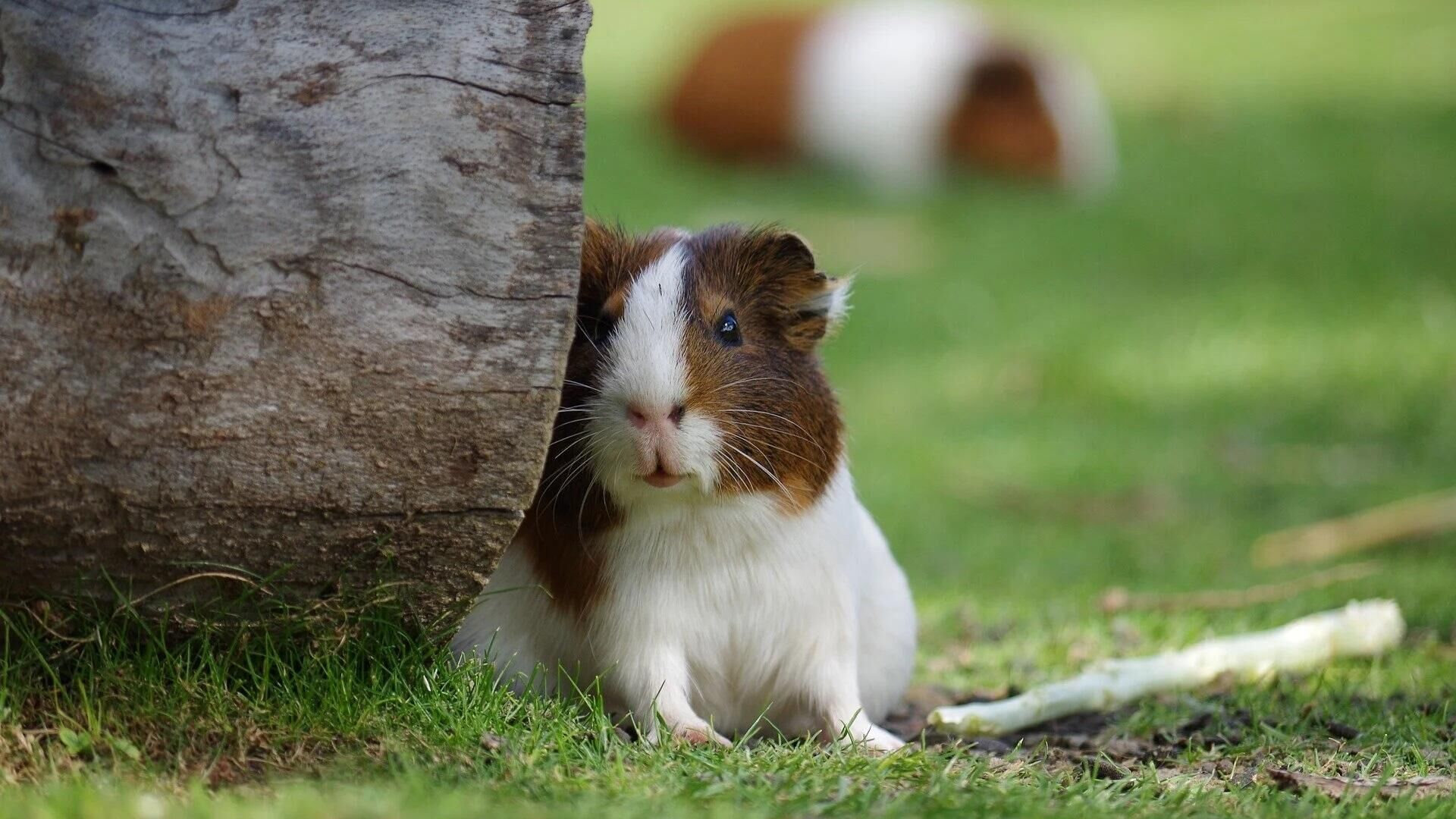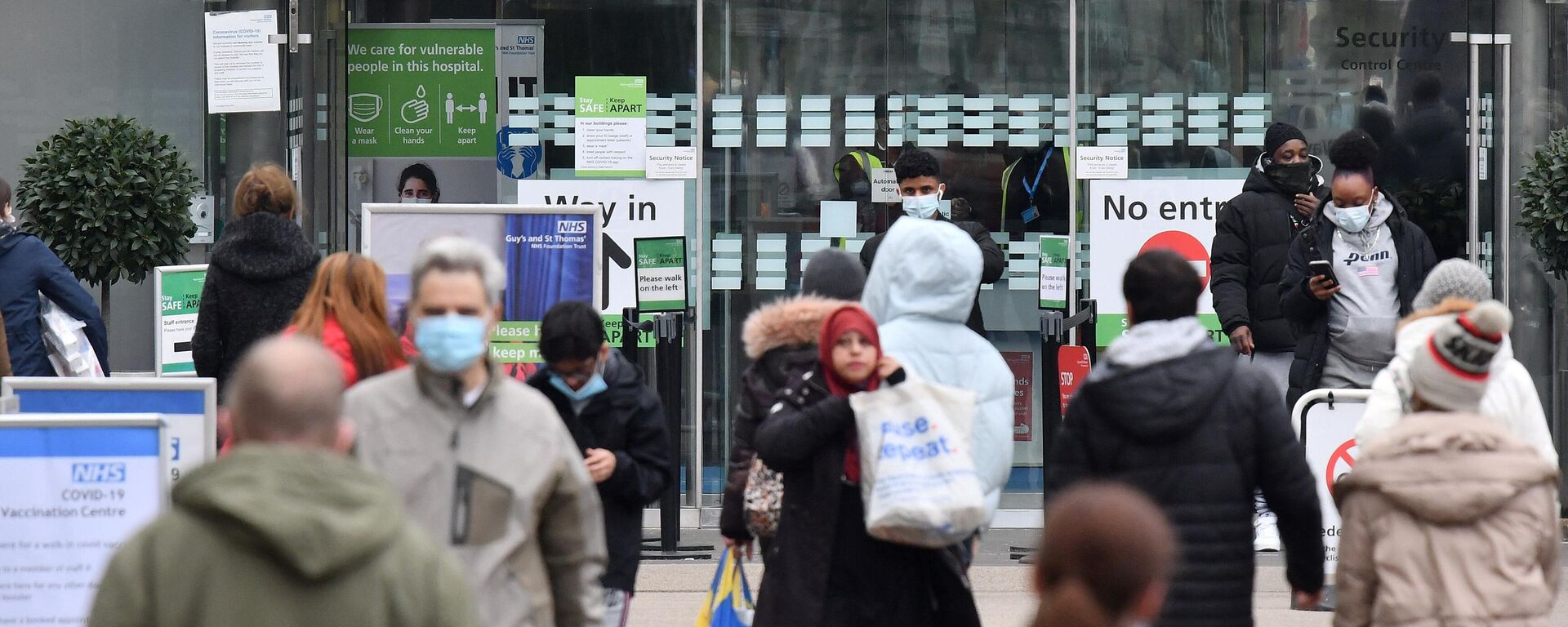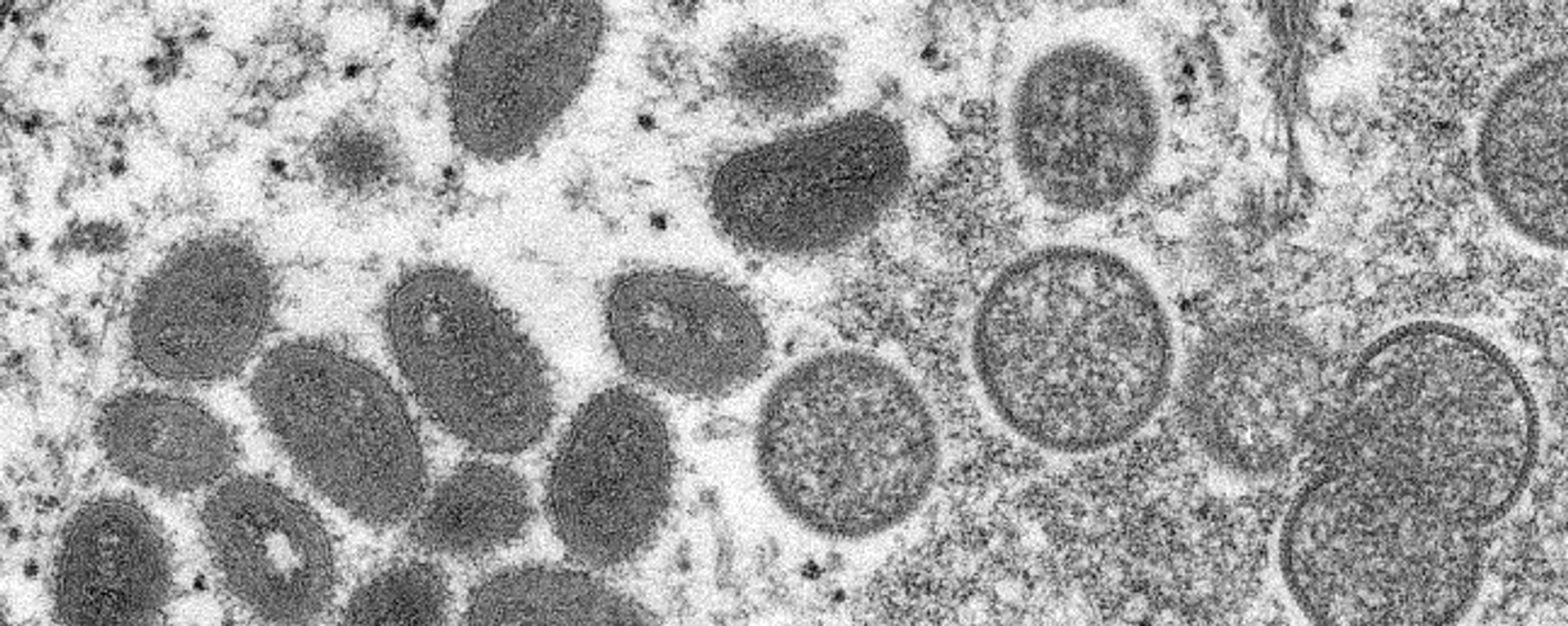https://sputnikglobe.com/20220527/pet-hamsters--guinea-pigs-could-be-culled-as-last-resort-to-stop-monkeypox-spread---ecdc-1095823845.html
Pet Hamsters & Guinea Pigs Could Be Culled as 'Last Resort' to Stop Monkeypox Spread - ECDC
Pet Hamsters & Guinea Pigs Could Be Culled as 'Last Resort' to Stop Monkeypox Spread - ECDC
Sputnik International
Cases of monkeypox, a rare viral disease endemic in some African countries and usually transmitted to people from wild animals through body fluids, respiratory... 27.05.2022, Sputnik International
2022-05-27T13:41+0000
2022-05-27T13:41+0000
2022-05-27T13:41+0000
monkeypox
hamster
guinea pig
european centre for disease prevention and control
world health organization (who)
https://cdn1.img.sputnikglobe.com/img/07e6/05/1b/1095826508_0:96:1921:1176_1920x0_80_0_0_7c0e4593ac22d4c47d804decc7b46caa.jpg
Rodent pets such as hamsters, gerbils and guinea pigs could be culled to contain the outbreak of monkeypox under “last resort” guidelines released by the European Centre for Disease Prevention and Control (ECDC).It is “theoretically possible” that people could pass on monkeypox to their domestic pets, the ECDC said. Subsequently, the animals could act as a reservoir and vector for transmission of the disease back to humans.However, the report emphasised that the likelihood of such a spill-over was estimated to be “very low”.At the same time, national health authorities have been urged to work closely with veterinary experts to ensure sufficient testing capacity and to quarantine pets believed to have been exposed to monkeypox.The agency added that exposed rodent pets should be isolated in monitored facilities and only killed “as a last resort” if there is no testing or isolation capacity.The ECDC guidance clarified that mammalian pets, such as cats and dogs, could be successfully isolated in home conditions, with a vet checking on them regularly.After the UK Health Security Agency confirmed that cases of the rare virus hit 90 on 26 May, the UK government is believed to be mulling over drawing up similar guidelines, reported The Daily Mail. Scientists are increasingly concerned that pet animals could become reservoirs for the surging zoonotic disease, after Wales and Northern Ireland also declared their first cases on Thursday.Britain’s ministers are expected to urge people who have the rash that is a tell-tale sign of monkeypox to stay away from their pets.Non-Endemic SurgeCases of the rare zoonotic disease that is usually transmitted to people from wild animals and is endemic in some African countries have surged since early May. Two cases were confirmed in British citizens who had returned from Nigeria, with similar cases reported in Europe and the US shortly after.200 confirmed cases and more than 100 suspected cases of the smallpox-like virus have been detected in non-endemic areas, according to the World Health Organization (WHO). The European Union has confirmed 118 cases of monkeypox.According to health officials, it is a milder West African strain of the virus that is driving the outbreaks, with most patients recovering in a few week and no deaths reported so far.The WHO underscored that the disease is transmitted mainly to people from wild animals such as rodents and primates, with human-to-human transmission also possible.According to Maria Van Kerkhove, the COVID-19 technical lead at the WHO, most of the cases that have been detected in non-endemic areas are among gay or bisexual men. UKHSA's chief medical adviser Dr Susan Hopkins applauded the fact that the new monkeypox cases were being spotted “promptly” thanks to “extensive surveillance and contact tracing networks".
https://sputnikglobe.com/20220522/monkeypox-outbreak-uk-might-see-significant-rise-in-cases-over-next-week-1095698476.html
https://sputnikglobe.com/20220526/who-registers-200-monkeypox-cases-suspects-another-100-in-over-20-countries-1095808172.html
Sputnik International
feedback@sputniknews.com
+74956456601
MIA „Rosiya Segodnya“
2022
News
en_EN
Sputnik International
feedback@sputniknews.com
+74956456601
MIA „Rosiya Segodnya“
Sputnik International
feedback@sputniknews.com
+74956456601
MIA „Rosiya Segodnya“
monkeypox, hamster, guinea pig, european centre for disease prevention and control, world health organization (who)
monkeypox, hamster, guinea pig, european centre for disease prevention and control, world health organization (who)
Pet Hamsters & Guinea Pigs Could Be Culled as 'Last Resort' to Stop Monkeypox Spread - ECDC
Cases of monkeypox, a rare viral disease endemic in some African countries and usually transmitted to people from wild animals through body fluids, respiratory droplets and other contaminated materials, have recently soared in countries such as the US, Canada, Australia and several European nations.
Rodent pets such as hamsters, gerbils and guinea pigs could be culled to contain the
outbreak of monkeypox under “last resort” guidelines released by the European Centre for Disease Prevention and Control (ECDC).
It is “theoretically possible” that people could pass on monkeypox to their domestic pets, the
ECDC said. Subsequently, the animals could act as a reservoir and vector for transmission of the disease back to humans.
“Currently, little is known about the suitability of European peri-domestic (mammalian) animal species to serve as a host for the monkeypox virus. However, rodents, and particularly species of the family of sciuridae (squirrels) are likely to be suitable hosts, more so than humans, and transmission from humans to [pet] animals is theoretically possible. Such a spill-over event could potentially lead to the virus establishing in European wildlife and the disease becoming an endemic zoonosis,” stated the ECDC report.
However, the report emphasised that the likelihood of such a spill-over was estimated to be “very low”.
At the same time, national health authorities have been urged to work closely with veterinary experts to ensure sufficient testing capacity and to quarantine pets believed to have been exposed to monkeypox.
The agency
added that exposed rodent pets should be isolated in monitored facilities and only killed “as a last resort” if there is no testing or isolation capacity.
The ECDC guidance clarified that mammalian pets, such as cats and dogs, could be successfully isolated in home conditions, with a vet checking on them regularly.
After the UK Health Security Agency confirmed that cases of the rare virus hit 90 on 26 May, the UK government is believed to be mulling over drawing up similar guidelines, reported The Daily Mail. Scientists are increasingly concerned that pet animals could become reservoirs for the surging zoonotic disease, after Wales and Northern Ireland also declared their first cases on Thursday.
Britain’s ministers are expected to urge people who have the rash that is a tell-tale sign of monkeypox to stay away from their pets.
Cases of the rare zoonotic disease that is usually transmitted to people from wild animals and is endemic in some African countries have surged since early May. Two cases were confirmed in British citizens who had returned from Nigeria, with similar cases reported in Europe and the US shortly after.
200 confirmed cases and more than 100 suspected cases of the smallpox-like virus have been detected in non-endemic areas, according to the World Health Organization (WHO). The European Union has confirmed 118 cases of monkeypox.
According to health officials, it is a milder West African strain of the virus that is driving the outbreaks, with most patients recovering in a few week and no deaths reported so far.
The WHO underscored that the disease is transmitted mainly to people from wild animals such as rodents and primates, with human-to-human transmission also possible.
According to Maria Van Kerkhove, the COVID-19 technical lead at the WHO, most of the cases that have been detected in non-endemic areas are among gay or bisexual men.
UKHSA's chief medical adviser Dr Susan Hopkins applauded the fact that the new monkeypox cases were being spotted “promptly” thanks to “extensive surveillance and contact tracing networks".





